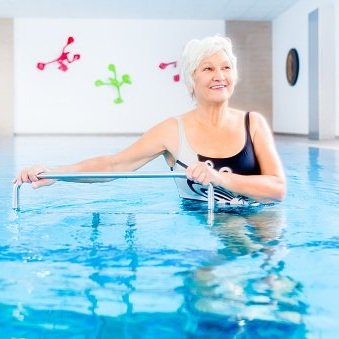All the Reasons Why Aquatic Therapy is a Great Option
Water-based exercise, also known as aquatic therapy, is a type of therapy that uses water to promote muscle relaxation and improve overall health. The magic of aquatic treatment lies in the physical properties of water, like its ability to increase mobility and strengthen the muscles. This exercise can help people get and stay fit by being in the water.
Benefits
While submerged in water, buoyancy helps support the weight of the body. This is beneficial for people with arthritis or those who are overweight. It can also help decrease the stress on their joints.
The water's natural viscosity provides an excellent source of resistance for aquatic therapy exercises. This resistance can be used to strengthen various muscle groups without weights.
Through hydrostatic pressure, aquatic therapy can also help improve joint position awareness and reduce swelling. This type of exercise is beneficial for people with arthritis and joint sprains. It can also help decrease joint and soft tissue swelling.
The buoyancy and uniform pressure of the water help improve balance. It allows one to react without fear of falling or getting injured. Also, aquatic therapy can be combined with other forms of treatment, such as regular physical therapy. Individuals can access the pool using stairs or a hydraulic lift.
Warm water helps decrease pain and improves muscle function. It also stimulates the blood supply to sore muscles. Water also strengthens the weakened structures of the body as it bears the body weight, allowing those stressed areas some temporary relief.
The warmth of the water also assists in releasing toxins and increasing blood flow to injured body parts. It's beneficial for people with chronic conditions such as back pain and muscle spasms who find that the warm water releases tension in the body.
Limitations
Although aquatic therapy is helpful, it can also be challenging to achieve functional gains from this exercise. For instance, walking in water may be easy to regain mobility, but one may find it challenging to accomplish the same outside the pool.
Aquatic therapy can help individuals feel good but may not provide the same results as other exercises when increasing strength and functional mobility.
Although it's generally beneficial for people with certain conditions, aquatic therapy shouldn't be performed on people with cardiac disease or infections. Individuals with bladder or bowel incontinence should also avoid this treatment.
For those who can't swim, only attempt aquatic therapy with a proficient trainer in the water.
Consult a physical therapist
If there is a limitation in mobility due to injury or illness, aquatic therapy can be beneficial. A skilled physical therapist can help patients get optimal benefits from this practice.

